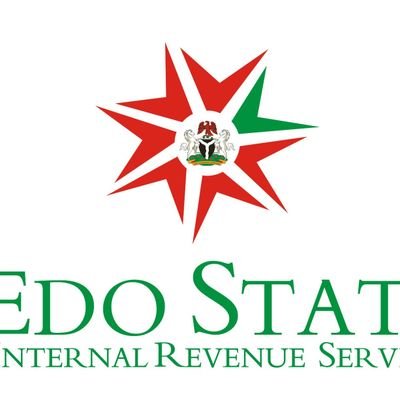NEWS
Revenue Service Partners NIS to plug Tax Leakages in Edo

The Edo Internal Revenue Service (EIRS) and the Nigerian Immigration Service (NIS) have agreed to share data to plug tax leakages in the state.
EIRS’s Executive Chairman, Mr Igbinidu Inneh, had sought the collaboration of his organisation with NIS, during a courtesy visit to the NIS state Comptroller, Mrs Augusta Okueyungbo, in Benin.
A statement by EIRS’s head of Media Communication, Mr Courage Eboigbe, and made available to the News Agency of Nigeria (NAN) on Wednesday in Benin, quoted Inneh as requesting the collaboration to boost revenue generation for both state and federal governments.
He said collaboration between both organisations as members of the Joint Tax Board (JTB), through sharing of requisite data and documentation, capture of expatriate returns, and Pay As You Earn (PAYE) details, would help to plug tax leakages.
Inneh said: “The Nigerian Immigration Service is very critical in the entire process of documentation and management of the entry and exit point of people, and critical in the supply and control of expatriate memo as far as Nigeria is concerned.”
He noted that to block loopholes there was need for “compliance with annual filing requirements since EIRS and the NIS are partner institutions, hence the need by staff to file their tax requirements promptly.
“And also, the need to ensure that the remittances of Pay As You Earn (PAYE) which are taxes deducted from earnings of your personnel are properly remitted to the coffers of government.”
He stated that “same thing applies to Withholding Taxes which relate to enterprises and individuals who do business with the NIS.
“This, administratively has to do with the monthly expatriate returns of companies who employ expatriates to do businesses in Edo State whom are required as a matter of law to file.
“A lot of these companies do not file these monthly returns. They mostly manipulate the entries to claim/show they have 10 expatriate staff to fill the quota they have applied for.
“There are entry and exits; they simply substitute the names. They don’t go through that process which they are supposed to follow in a number of instances.
“They are supposed to fill a deletion list. Instead, they simply takeout the names of those who have exited and introduce a new list. It is something we must discourage.”
Inneh noted that aside taking our Immigration and regulation laws for granted, there was need to track migratory patterns of those who had been approved to work in the country.
The comptroller, while affirming to a symbiotic relationship with sister organisations and stationing its personnel in the 18 local government areas of the state for effective discharge of duties, promised to deliver the requests made by the EIRS to her superiors. (NAN)
NEWS
FG Imposes 7-year Ban on New Federal Tertiary Institutions

The Federal Executive Council (FEC) has approved a seven-year moratorium on the establishment of new federal tertiary institutions.
Dr Tunji Alausa, Minister of Education announced the approval, after Wednesday’s FEC meeting, presided over by President Bola Tinubu at the Presidential Villa, Abuja.
He explained the ban applies to all federal universities, polytechnics, and colleges of education.
According to Alausa, the decision aims to address systemic decay caused by unregulated expansion.
”What we are witnessing today is duplication of new federal tertiary institutions, a significant reduction in the current capacity of each institution, and degradation of both physical infrastructure and manpower.
”“If we do not act decisively, it will lead to marked declines in educational quality and undermine the international respect that Nigerian graduates command.”
“We are doing this to further halt decays in tertiary institutions which may in future affect the quality of education and consequently cause unemployment of graduates from some of these institutions.”
Alausa noted Nigeria currently has 72 federal universities, 108 state universities, and 159 private universities with similar trends in polytechnics and colleges of education.
He pointed to a growing mismatch between the number of institutions and available student enrollment.
He cited a northern university with fewer than 800 students but over 1,200 staff, calling it unsustainable.
The minister described the moratorium as a bold corrective measure by the Tinubu administration.
He said the government would now focus on upgrading existing institutions, improving infrastructure, boosting manpower, and increasing capacity.
“We need to improve the quality of our education system and increase the carrying capacity of our current institutions so that Nigerian graduates can maintain and enhance the respect they enjoy globally.”
The minister however announced that the Council approved 9 new private universities out of the 79 active requests pending applications.
”Several of these applications have been in the pipeline for over six years, with investors having already built campuses and invested billions of Naira,” he explained.
“Due to inefficiencies within the NUC, approvals were delayed. We have since introduced reforms to streamline these processes, and today’s approvals are a result of clearing this backlog.”
(NAN)
Foreign News
CAF Sanctions Kenya Again over Crowd Trouble

The Confederation of African Football (CAF) has sanctioned African Nations Championship (CHAN) co-host, Kenya, for the second time in as many weeks over security breaches.
In a statement made available on Monday evening, the continental governing body said that it has limited entry to the 48,000-seat Moi International Sports Centre.
It also said that, known as Kasarani Stadium, can accommodate 27,000 fans for Sunday’s Group A match between Kenya and Zambia.
CAF said only electronic ticket holders would be allowed into the stadium, with thermal tickets prohibited.
The governing body warned that Kenya’s matches could be relocated from Kasarani Stadium if organisers fail to prevent further breaches.
“We trust these measures will be applied swiftly to protect competition’s integrity, ensure fan safety, and uphold confidence in Kenya’s commitment to the tournament,” CAF said.
The sanctions follow incidents on Aug. 10 when Kenya defeated two-time winner Morocco 1-0 in spite of playing the entire second half with 10 men.
The win put Kenya top of Group A with seven points.
The debutants would reach the quarterfinals with at least a draw against winless Zambia.
Last week, Kenya’s football federation was fined nearly 20,000 U.S. dollars for security lapses during the team’s 1-0 win over DR Congo in the tournament opener on Aug. 3.
In the latest case, CAF cited major lapses, including stadium gates and restricted service areas being overrun by ticketless spectators and holders of government-distributed physical tickets.
It also accused security personnel of losing control at exit points and allowing breaches of the perimeter fence that enabled thousands of ticketless fans to enter.
CAF had expressed alarm over the use of tear gas and flash grenades, reports of live ammunition fired near spectators and staff, and violent incidents such as stone-throwing at security personnel.
It also cited unsafe vehicle movement in spectator areas, inadequate police response, and the lack of medical incident reports in spite of injuries being reported.
Organisers were further criticised for insufficient communication tools and the absence of CCTV coverage at critical entry points.
Education
Varsity Don Advocates Establishment of National Bureau for Ethnic Relations, Inter-Group Unity

By David Torough, Abuja
A university scholar, Prof. Uji Wilfred of the Department of History and International Studies, Federal University of Lafia, has called on the Federal Government to establish a National Bureau for Ethnic Relations to strengthen inter-group unity and address the deep-seated ethnic tensions in Nigeria, particularly in the North Central region.
Prof.
Wilfred, in a paper drawing from years of research, argued that the six states of the North Central—Kwara, Niger, Kogi, Benue, Plateau, and Nasarawa share long-standing historical, cultural, and economic ties that have been eroded by arbitrary state boundaries and ethnic politics.According to him, pre-colonial North Central Nigeria was home to a rich mix of ethnic groups—including Nupe, Gwari, Gbagi, Eggon, Igala, Idoma, Jukun, Alago, Tiv, Birom, Tarok, Angas, among others, who coexisted through indigenous peace mechanisms.
These communities, he noted, were amalgamated by British colonial authorities under the Northern Region, first headquartered in Lokoja before being moved to Kaduna.
He stressed that state creation, which was intended to promote minority inclusion, has in some cases fueled exclusionary politics and ethnic tensions. “It is historically misleading,” Wilfred stated, “to regard certain ethnic nationalities as mere tenant settlers in states where they have deep indigenous roots.”
The don warned that such narratives have been exploited by political elites for land grabbing, ethnic cleansing, and violent conflicts, undermining security in the sub-region.
He likened Nigeria’s ethnic question to America’s historic “race question” and urged the adoption of structures similar to the Freedmen’s Bureau, which addressed racial inequality in post-emancipation America through affirmative action and equitable representation.
Wilfred acknowledged the recent creation of the North Central Development Commission by President Bola Tinubu as a step in the right direction, but said its mandate may not be sufficient to address ethnic relations.
He urged the federal government to either expand the commission’s role or create a dedicated Bureau for Ethnic Relations in all six geo-political zones to foster reconciliation, equality, and sustainable development.
Quoting African-American scholar W.E.B. Du Bois, Prof. Wilfred concluded that the challenge of Nigeria in the 21st century is fundamentally one of ethnic relations, which must be addressed with deliberate policies for unity and integration.



























